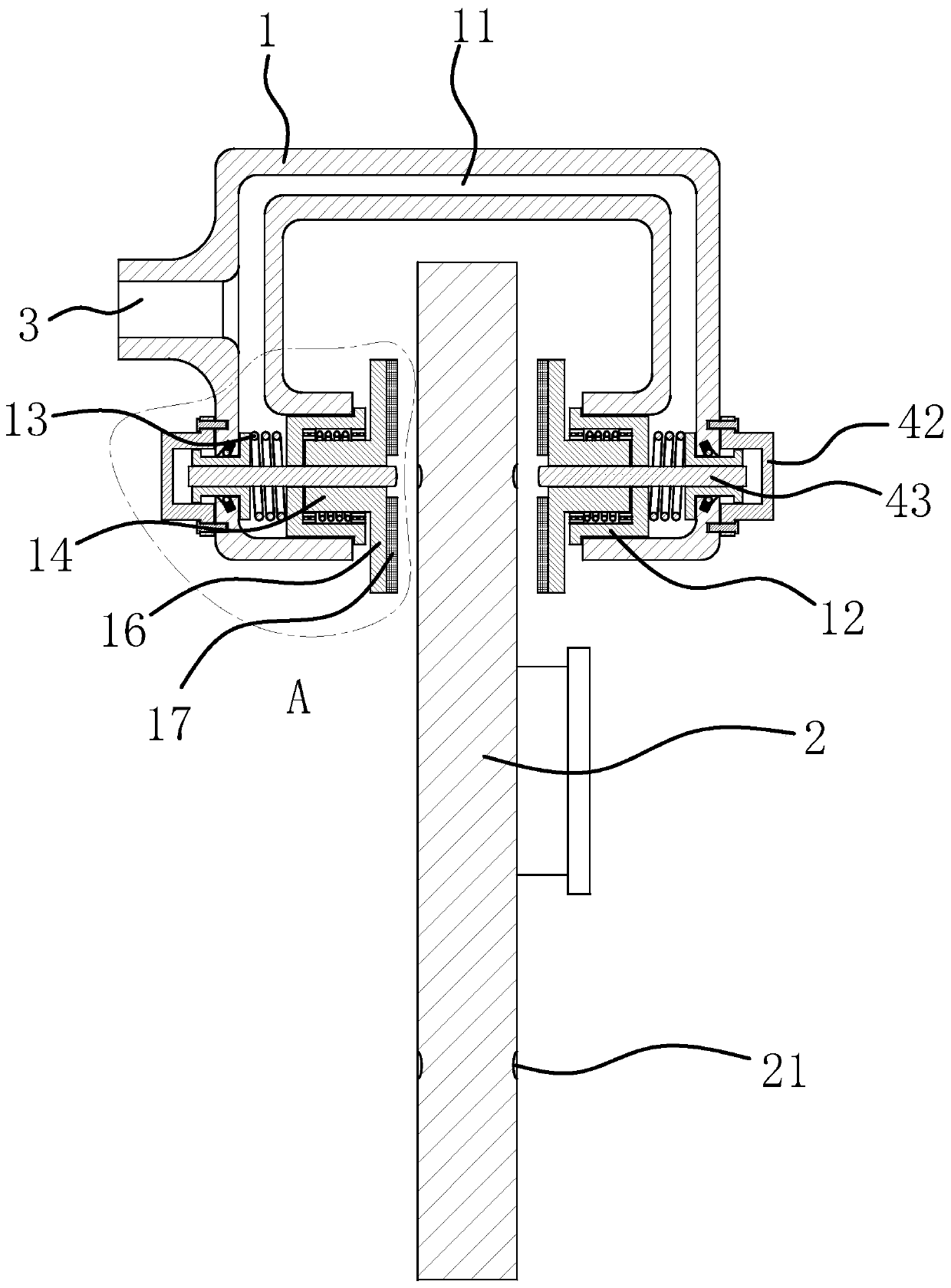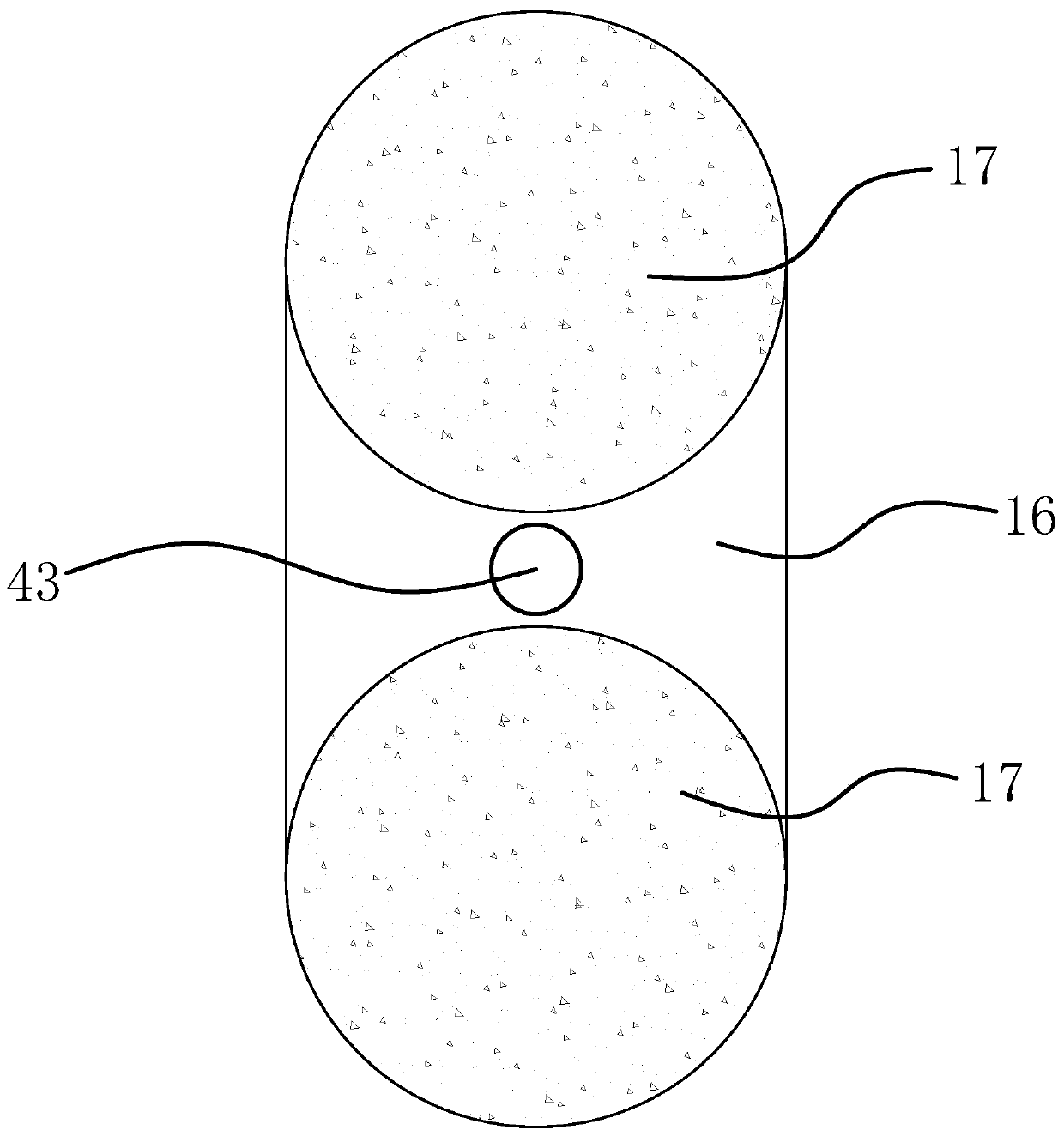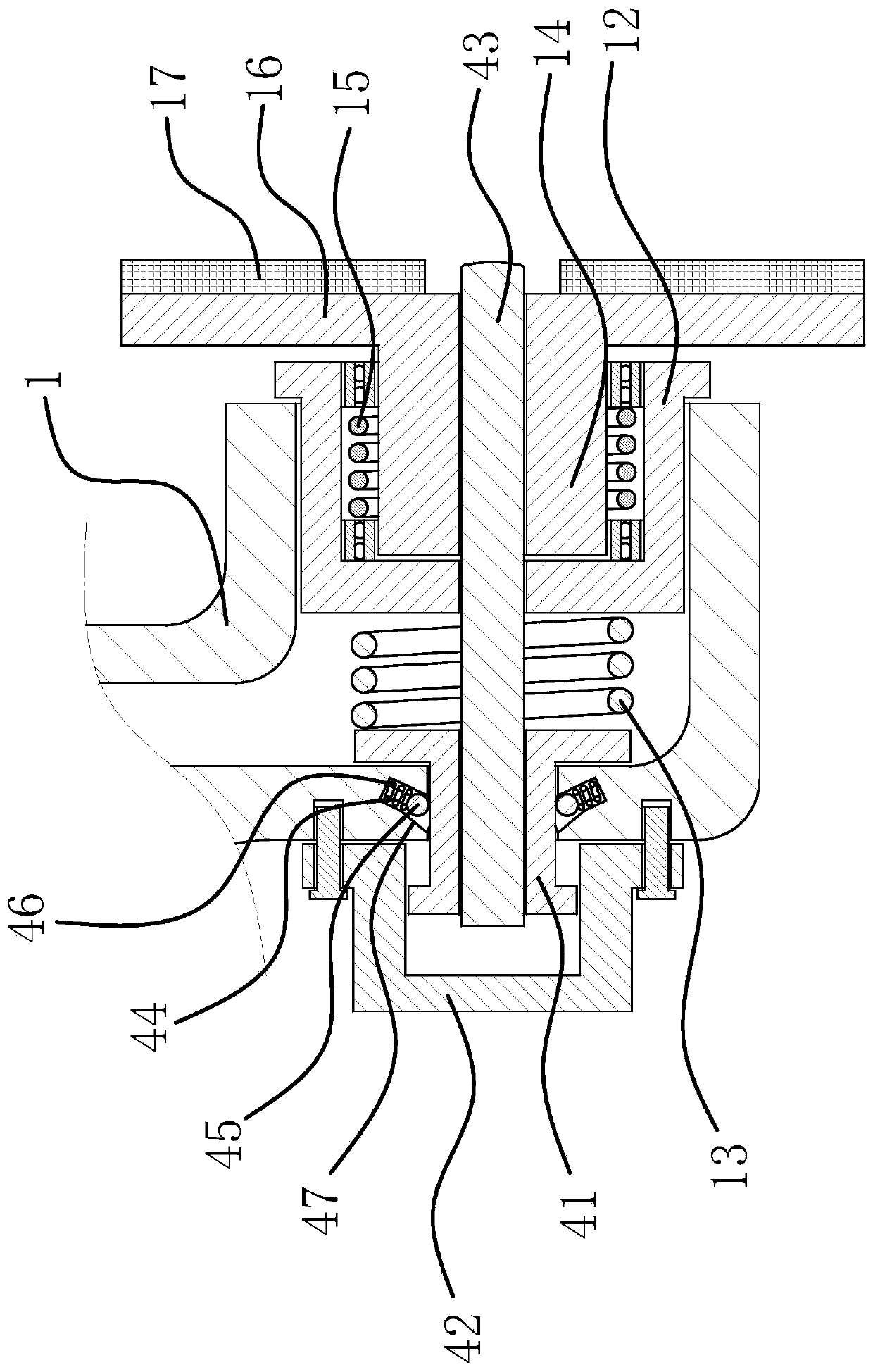Automobile disc-type brake system
A disc brake and brake system technology, applied in the direction of brake types, brake actuators, brake components, etc., can solve the problem of limited fluid compression space, wear and tear of rust-proof and wear-resistant layers, brake pads and brakes Disk wear and other problems, to achieve the effect of improving the heat dissipation effect, enhancing the heat dissipation effect, and preventing secondary wear
- Summary
- Abstract
- Description
- Claims
- Application Information
AI Technical Summary
Problems solved by technology
Method used
Image
Examples
Embodiment Construction
[0025] The following are specific embodiments of the present invention in conjunction with the accompanying drawings to further describe the technical solutions of the present invention, but the present invention is not limited to these embodiments.
[0026] Such as figure 1 , figure 2 with image 3 As shown, the disc brake system includes a brake caliper card 1 and a brake disc 2. The brake caliper card 1 has a hydraulic channel 11, and the two ends of the brake caliper card 1 respectively have a The brake end is provided with a valve hole communicating with the hydraulic channel 11 and perpendicular to the brake disc 2. A brake piston 12 is slidably connected in the valve hole. The outer end of the brake piston 12 is between the inner wall of the hydraulic channel 11. A return spring 13 is connected between the brake piston 12 and a guide hole is opened at the inner end of the brake piston 12. A mounting shaft 14 is inserted into the guide hole. The outer end of the mounting s...
PUM
 Login to View More
Login to View More Abstract
Description
Claims
Application Information
 Login to View More
Login to View More - R&D
- Intellectual Property
- Life Sciences
- Materials
- Tech Scout
- Unparalleled Data Quality
- Higher Quality Content
- 60% Fewer Hallucinations
Browse by: Latest US Patents, China's latest patents, Technical Efficacy Thesaurus, Application Domain, Technology Topic, Popular Technical Reports.
© 2025 PatSnap. All rights reserved.Legal|Privacy policy|Modern Slavery Act Transparency Statement|Sitemap|About US| Contact US: help@patsnap.com



